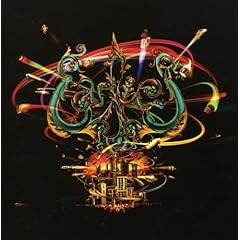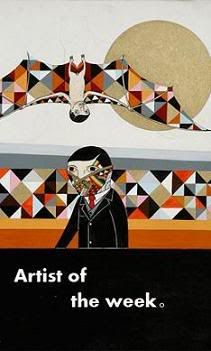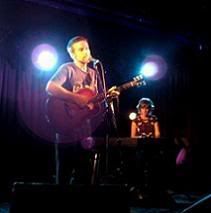
Artist-The Earlies
Album-The Enemy Chorus
Release Date-Jan 23, 2007
Genre/Style-Indie Rock
Size-76M
Quality-HQ
Biography-With half its members residing in Texas (Brandon Carr and J.M. Lapham) and the other half (Christian Madden and Giles Hatton) in northern England, the Earlies bridge the geographical gap with the wonders of technology and the group's shared love of prog, psychedelic, country, and electronica. The band's "musical pen pals" approach started in the late '90s, when Lapham met Madden at a sound recording class in Manchester, and also met Carr at a record store in Texas. Acting as the link between the other members, Lapham handed out DAT tapes to Carr, Hatton, and Madden, and this way the group slowly built the songs that they began releasing in 2002 on EPs such as Bring It Back Again. In 2004, the band released These Were the Earlies, a collection of their previously released work, in the U.K. That year also marked the first time that all of the Earlies met each other in person, for a tour that expanded the band's ranks to a small army of 11. American fans had to wait until 2005 to get a domestically issued copy of These Were the Earlies, when Secretly Canadian released the album that fall. The band returned in winter 2007 with The Enemy Chorus, a much darker, more ambitious work that underscored their prog influences and added a dash of Krautrock for good measure.
Review-by Heather Phares Though These Were the Earlies was the Earlies' debut album, it was also a collection of the EPs that they'd recorded over the span of several years. Keeping that in mind helps explain why their second album, The Enemy Chorus, is a fairly drastic change from the mellow experimentalism of their first. While the band still sounds eclectic, their eclectic sounds are now in service of a much more organized — and much darker — set of songs. From the album title to song names like "Burn the Liars" to the tension that stretches through nearly every track, The Enemy Chorus is palpably, if not obviously, political and conceptual. Taut, Krautrock-inspired lock grooves and tense electronics dominate, giving the feeling of some impending conflict or crisis, particularly on the album's early songs. "No Love in Your Heart" opens the album with oddly majestic brass fanfares, martial drumbeats, and a relentlessly rolling synth bass; "Burn the Liars"' impatient rhythms and heavy keyboards suggest a sci-fi dystopia; and "The Enemy Chorus" itself delivers on that promise, painting pictures of "trees marked with Xs/waiting for the final cut." By the time the sweet pedal steel and delicate textures of "The Ground We Walk On" (one of the songs that fans of These Were the Earlies will probably like right away) roll around, it's a relief — and shows how carefully considered The Enemy Chorus' ebb and flow is. The Earlies' ambitions are also reflected in more abstract tracks like "Gone for the Most Part," a collage of orchestral sounds and alarm clocks, and the meditative, Eastern-tinged closer, "Breaking Point." At times, the album feels more interesting than likeable, but The Enemy Chorus does include a few moments of instant gratification: "Foundation and Earth"'s bouncy rhythm and flashy brass feel directly descended from '70s AM pop, and "Broken Chain" is a twinkling mantra that also nods to These Were the Earlies. The Enemy Chorus is a strangely formidable album, and in its own way, a daring one, too — these songs of revenge, oppression, emptiness, and despair might puzzle some fans at first, but they certainly are impressive.
Product-buy it?
Download Links have been removed. Please go to music store to purchase it.





No comments:
Post a Comment